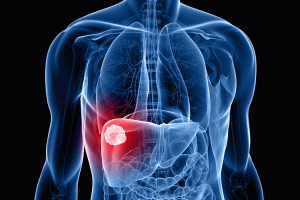
Liver disease is a major health concern, causing millions of deaths worldwide each year.
One serious complication is liver fibrosis, scarring that can lead to liver failure.
There is currently no effective treatment, but new research suggests promise for exosomes, tiny sacs released by cells.
Published in the journal eGastroenterology.
Non-parenchymal cells like hepatic stellate cells (HSCs), Kupffer cells (KCs), and liver sinusoidal endothelial cells (LSECs) play a key role in fibrosis development.
These cells are involved in inflammation, scar formation, and tissue repair.
Understanding their function is vital for new therapies.
Exosomes are emerging as potential treatments for liver fibrosis.
Derived from various cell sources, they can be engineered to target specific non-parenchymal cells.
This targeted approach offers several advantages.
Exosomes can deliver drugs directly to cells involved in fibrosis, reducing side effects on healthy tissue.
They can efficiently carry therapeutic cargo like drugs, RNA molecules, and signalling molecules.
Additionally, exosomes can be modified to target specific cell types within the liver.
Current research explores exosomes in several ways. Exosomes from stem cells or engineered with antifibrotic molecules can inhibit HSC activation and collagen production.
Exosomes can also modulate KCs, promoting their anti-inflammatory phenotype to break down scar tissue.
Moreover, exosomes may help repair LSEC fenestrae, pores essential for nutrient exchange and waste removal.
Exosome therapy offers a promising, innovative approach to treating liver fibrosis.
While further research is needed to fully understand their potential, exosomes represent a significant step forward in this fight.
Standardised protocols for exosome production, storage, and clinical use are crucial.
Exploring exosome applications and targeting strategies is essential to ensure their safety and efficacy as therapeutic agents or delivery vehicles for liver fibrosis treatment.
Overall, exosomes hold great promise as a novel therapy for liver fibrosis, offering opportunities for targeted treatment and improved patient outcomes. However, it is important to note that no exosome therapy for liver fibrosis has reached clinical trials yet.
Continued research and development are essential to advance our understanding and use of exosomes in liver fibrosis therapy.
We are an independent charity and are not backed by a large company or society. We raise every penny ourselves to improve the standards of cancer care through education. You can help us continue our work to address inequalities in cancer care by making a donation.
Any donation, however small, contributes directly towards the costs of creating and sharing free oncology education.
Together we can get better outcomes for patients by tackling global inequalities in access to the results of cancer research.
Thank you for your support.